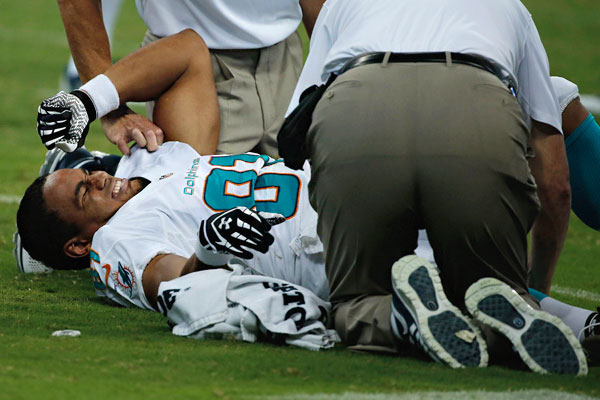With the football season starting up again and everyone
talking about creating their fantasy football teams, injuries are also of
interest. We always hear of them having concussion but there are definitely
injuries of the lower limb that can keep players out of the season. Dustin
Keller for the Miami Dolphins recently injured his right knee against the Houston
Texans. He had torn ACL, PCL, and MCL, which was no surprise that led to a
dislocated knee. So what do those acronyms stand for and why do they cause such
serious injuries?
Here’s a quick explanation:
Anterior cruciate ligament (ACL): It is one of the four ligaments
that attaches the front of the tibia to the femur and it is located inside the
knee. It prevents the lower leg from sliding out in front of the upper leg. Tears
of the ligament often result from frontal impact on knee or thigh when the foot
is fixed. A test used to determine if your ACL is torn is called anterior
drawer sign because the leg will slide forward like opening a drawer.
Posterior cruciate ligament (PCL): This is like the stronger
brother of the ACL that helps hold the upper and lower leg together. This
ligament prevents the lower leg from sliding out behind the upper leg. Injury
usually happens by overextending the knee, such as a direct blow to the flexed
knee or motor vehicle accidents (“dashboard injury”).
Medial collateral ligament (MCL): It is located on the inner
surface of the knee connecting femur and tibia. Part of the ligament Stabilize
the knee, promote locking of joint, and prevents the knee from bending inward.
Tackling is a common cause of injury to this ligament.
As you can see with the picture to the right that the ACL and PCL cross each other inside the knee joint and that is why they are called the cruciate ligaments. I hope that this helps some people understand each of these
injuries and since he tore 3 of the 4 ligaments that help hold his knee
together it is no wonder he was left with a dislocated knee.



No comments:
Post a Comment